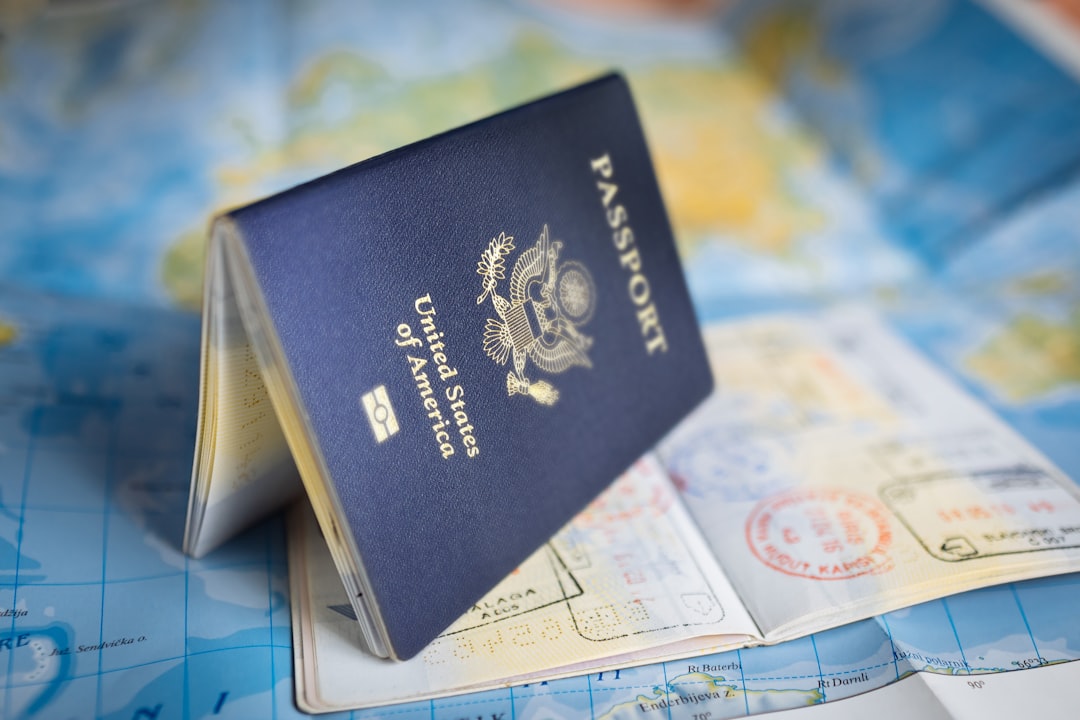No products in the cart.
Navigating the H-1B Visa Fee: Implications for International Workers
The new $100,000 fee for H-1B visas is set to reshape the landscape for international talent in the U.S. Discover the implications and who will be affected.
In a world increasingly dependent on global talent, the recent announcement of a $100,000 fee for H-1B visas has sent ripples through the tech industry and beyond. For many, these visas represent not just a job opportunity, but a lifeline to a better life. Yet, as the cost of entry rises, so too does the anxiety surrounding the future of work in the United States.
This development is more than just a financial burden; it’s a pivotal moment for the international workforce. The H-1B visa, a cornerstone for skilled professionals from around the globe, has long been a ticket to innovation and economic growth in the U.S. But this hefty new fee could redefine who gets in and who stays out.

Historically, the H-1B visa has been a beacon for engineers, scientists, and other skilled workers seeking opportunities in American companies. According to the U.S. Citizenship and Immigration Services (USCIS), over 200,000 applications are filed annually, with tech giants like Google and Amazon being the primary beneficiaries. However, the new fee—expected to be implemented in the coming year—raises questions about accessibility and fairness in the hiring process.
But who will feel the brunt of this fee? The immediate answer points to tech startups and smaller enterprises, which often rely heavily on H-1B workers to fill skill gaps. For them, the financial implications are stark. A startup that once could afford to hire a software engineer from India may now find itself reconsidering its hiring strategies, as the cost of bringing that talent on board skyrockets.
Historically, the H-1B visa has been a beacon for engineers, scientists, and other skilled workers seeking opportunities in American companies.
To better understand the impact, we spoke with Maya Patel, a software engineer originally from Mumbai, who secured her H-1B visa last year. “When I moved here, I was excited about the opportunities,” she recalls. “Now, I worry that my friends back home won’t get the same chance I had. The fee is just too high.” Her sentiments echo a growing concern among aspiring international workers.
The implications extend beyond just individual workers. Economically, this fee could stifle innovation within the tech sector. The U.S. has long prided itself on being a global leader in technology, a reputation built on the contributions of diverse talents. A reduction in H-1B visa approvals would not only impact businesses but could also lead to a brain drain, where skilled individuals choose to pursue opportunities in countries with more welcoming immigration policies.
On the flip side, proponents of the fee argue that it could serve as a way to ensure that only the most qualified candidates enter the U.S. job market. “We need to prioritize American workers,” says James Thompson, an immigration policy analyst. “This fee could deter less qualified applicants and ensure that companies are investing in the right talent.” Yet, this perspective overlooks the reality that many American companies thrive on the unique insights and skills that international workers bring.
This dilemma is not just a U.S. issue; it resonates globally. Countries like Canada and Germany have been actively courting skilled immigrants, offering easier pathways to residency and work. For many international workers, the allure of these countries is growing stronger, especially in light of new barriers in the U.S.
So, what does the future hold for the H-1B visa program? Many analysts believe that the current administration may reconsider the fee as pushback grows from tech leaders and business owners. The pressure for reform could lead to a more balanced approach—one that supports both American workers and the international talent pool that fuels innovation.
A reduction in H-1B visa approvals would not only impact businesses but could also lead to a brain drain, where skilled individuals choose to pursue opportunities in countries with more welcoming immigration policies.
As we look ahead, it’s clear that the landscape of work in the U.S. is shifting. The new H-1B visa fee is more than just a policy change; it’s a reflection of how we value talent in an increasingly interconnected world. For young professionals like Maya, the stakes have never been higher. Will they continue to see the U.S. as a land of opportunity, or will they seek their fortunes elsewhere?











